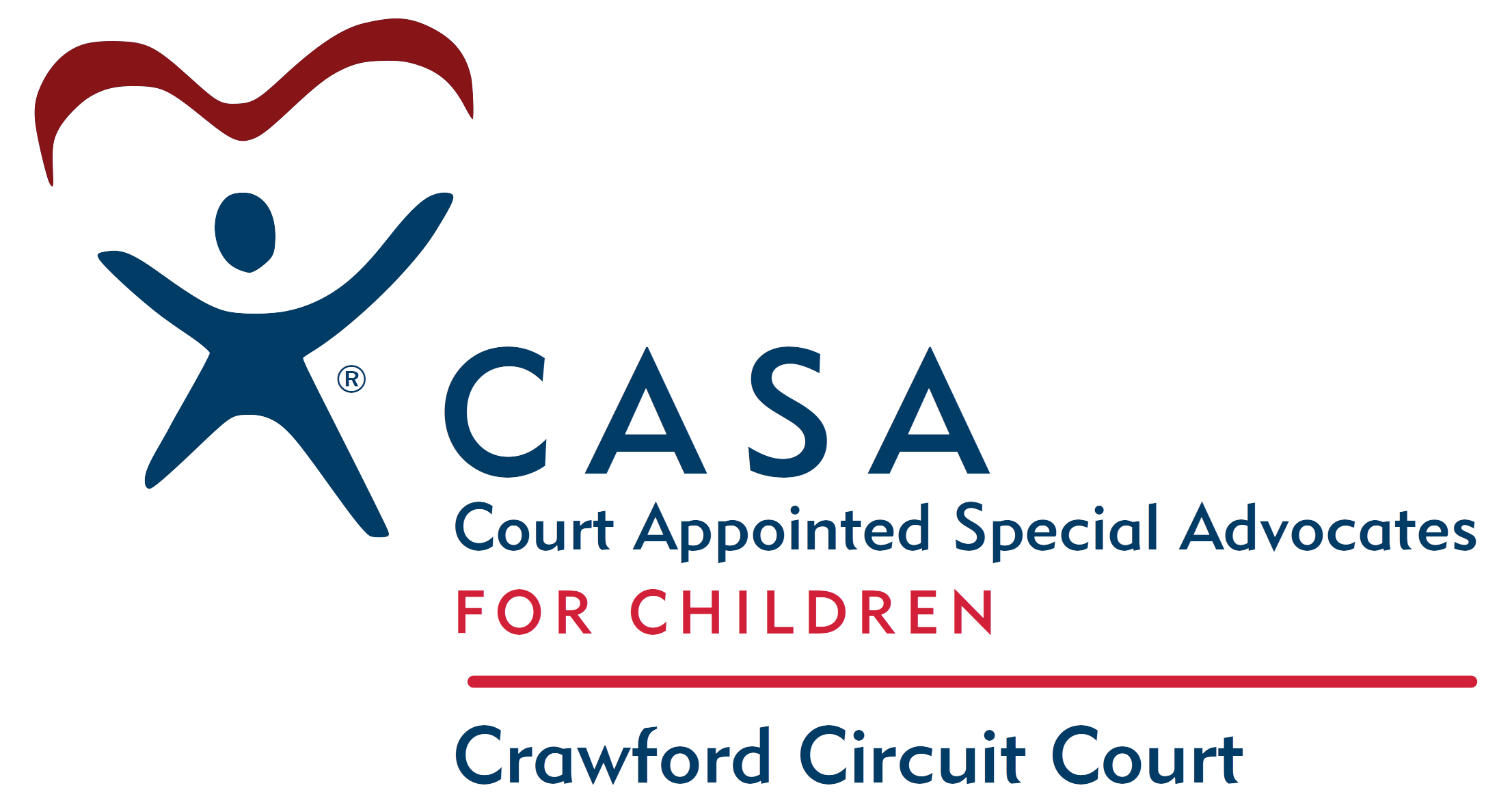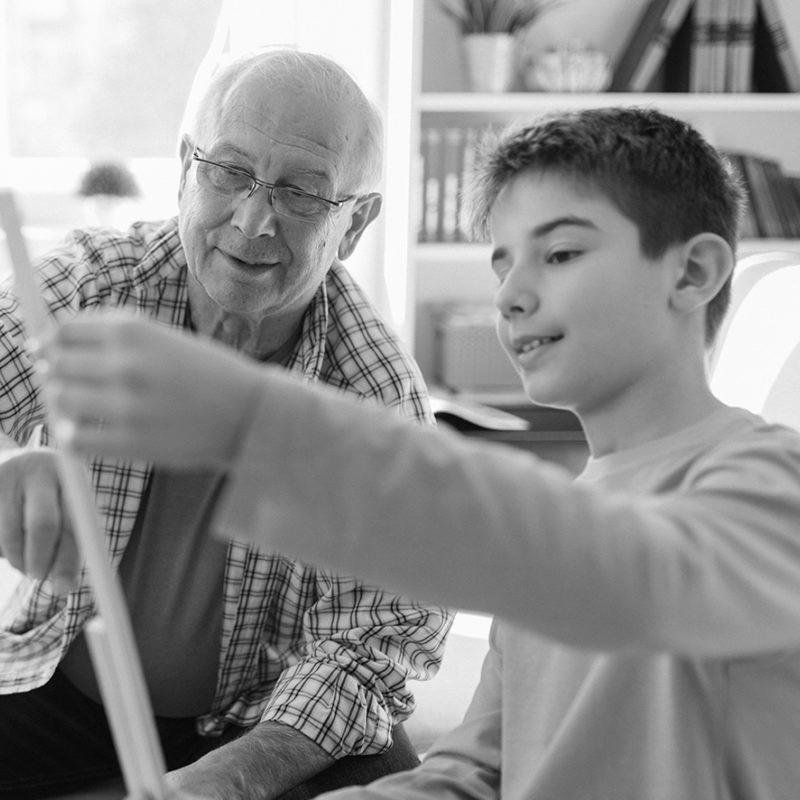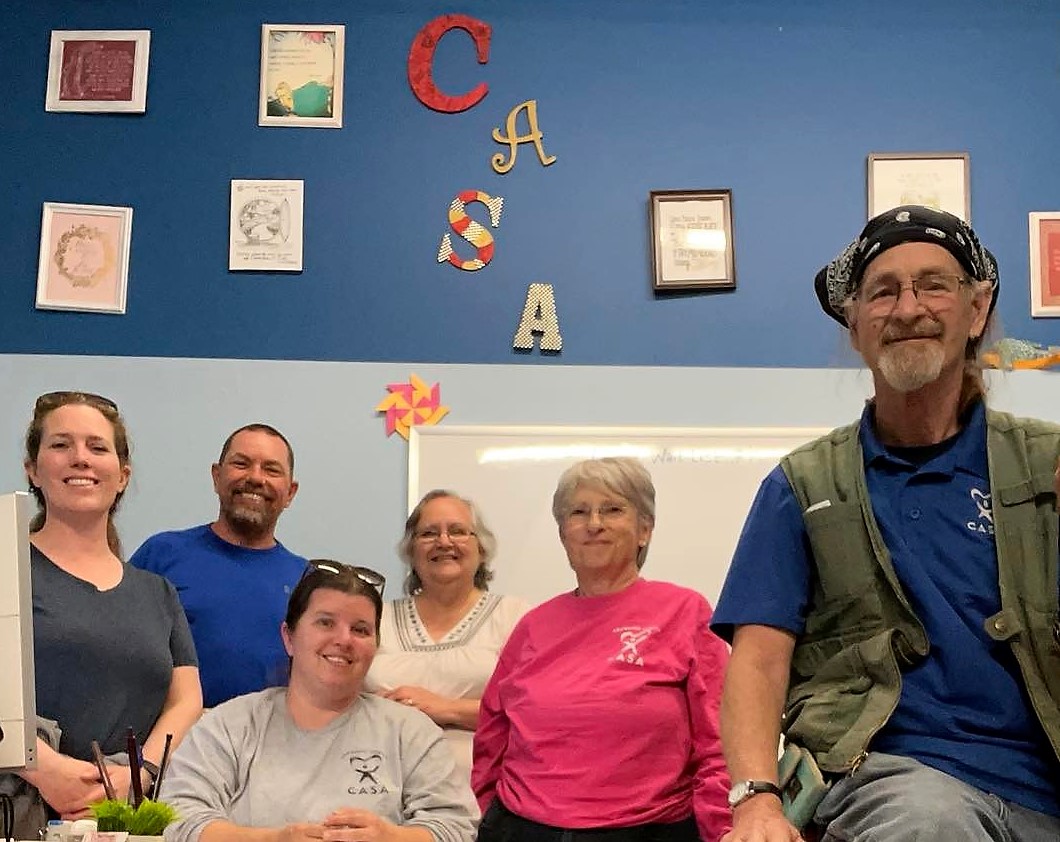
· for ·
err
children waiting
err
current volunteers
err
volunteers needed
1
volunteer can make all the difference
err

· for ·
err
children waiting
err
current volunteers
err
volunteers needed
1
volunteer can make all the difference

Our Mission:
Be the Voice for a Child
The mission of the Crawford County CASA Program is to advocate for the best interests of neglected, abused, and exploited children and to provide these children with a strong, informed, and independent voice in the court process. With the goal of ensuring for each child a safe, permanent, nurturing home, the Crawford County CASA Program recruits, screens, trains, and supervises community volunteers to serve as court appointed advocates for these children.


We believe that all children have the right to a home with loving people to care for them. But each year in
the United States, children are abused, neglected or abandoned by their families. They are removed from
their homes and placed in foster care or institutions. Eventually, they end up in court. Their only "crime"
is that they have been victims. It is up to the judge to decide their future. Should they remain in foster
care? Be reunited with parents? Or be adopted? In these cases, many children also become victims a second
time, lost in an overburdened child welfare system that cannot pay close attention to each child whose life
is in its hands.
That's where CASA comes in.
CASA volunteers are Court Appointed
Special Advocates for children — trained community volunteers appointed
by a judge as Officers of the court to speak up for children in court, and to help to humanize the often
frightening and confusing child welfare and legal systems for these children.


What does a CASA do?
1. When the child is removed from home or a case is opened...
2. ... a judge appoints a CASA volunteer.
3. The CASA volunteer meets with the child to learn more about them.
4. The CASA volunteer sets up regular meetings with the child.
therapist
doctor
foster parents
biological family
CPS worker
teacher
attorney ad litem
5. The CASA volunteer communicates with everyone involved in the case.
6. The CASA volunteer advocates for the child's best interests in court.
moves to different foster home
starts another new school
CPS reassigns caseworker
7. The CASA supports the child through various transitions
8. CASA volunteer continues working to find the child a permanent, loving home.
Director's Message


When I started this job 5 years ago, I had no idea what a CASA did. I quickly learned my volunteers were an amazing, diverse group of people who put their caring into action for the children in our community involved with DCS and the courts.
We speak up for those children; share their wishes and needs. We spend time with them and make sure they aren't forgotten throughout their case. We have the pleasure of helping these resilient children navigate a difficult time in their lives. Please join us in our mission to represent their best interests…to stand with them in their time of need.
Get started today by filling out a volunteer application.
Megan Timberlake, Director
FAQ
+
What does CASA stand for?
+
CASA stands for Court Appointed Special Advocate.
What makes the CASA program different?
+
CASA programs are the only volunteer organization directly connected to the court; volunteers are appointed and sworn in by a judge to speak for a child who would otherwise not be heard. As adults come and go in the lives of abused and neglected children, these children desperately need one adult to stay with them for the length of their court case–someone who develops knowledge of the child's particular needs and may prevent a child from falling through the cracks of the system. This is what a CASA volunteer does.
Who are CASA volunteers?
+
CASA volunteers are compassionate, objective, self-motivated individuals from the community who are
trained to speak on behalf of abused and neglected children. They come from all walks of life. About
half of all CASA volunteers in the United States work full-time.
A Court Appointed Special
Advocate (CASA) volunteer is a trained community member who is appointed by a judge to represent the
best interests of abused and neglected children in court. Any person who wants to stand up for an
abused or neglected child can be a CASA.
What is the role of a CASA volunteer?
+
A CASA volunteer provides a judge with objective information about the child to help the court make a sound decision about that child's future. Each case is as unique as the child involved. The CASA volunteer forms an opinion as to what is in the best interest of the child for their future, such as being reunified with their parents, living with relatives, getting a permanent guardian or adoption. The CASA volunteer makes a recommendation on placement to the judge and follows through on the case until it is permanently resolved.
How does a CASA volunteer gather information about a case?
+
To prepare a recommendation, the CASA volunteer talks with the child, and may also speak to parents, family members, social workers, school officials, health providers and others who are knowledgeable about the child's history. The CASA volunteer also reviews records pertaining to the child, including school records, medical records, case worker reports and other documents.
Is there a "typical" CASA volunteer?
+
No. CASA volunteers come from all walks of life and have a variety of professional, educational and ethnic backgrounds. Many volunteers work full-time, but others work part-time, stay at home or are retired. All are passionate and committed to helping abused and neglected children.
What do CASA volunteers do?
+
CASA volunteers visit the child, get to know the him or her and find out important information such as how the he or she is doing in placement, what kind of services are needed and how school is going. The CASA volunteer may also talk to professionals who are working on the case, to the child's family and/or to the foster parents, teachers and possibly others. The volunteer will review important documents relating to the case, such as summaries of the parent's progress in services. The volunteer then prepares a summary for the court about what they have learned about the child. In the report, the volunteer makes independent recommendations to the court about what should happen in the case in order to have the best outcome for the child—to keep the child safe, promote the child's well-being and help the child to be able to return home or to have another safe and permanent home as quickly as possible. The volunteer also monitors the case plan and help make sure the plan is followed and serves the best interests of the child.
What about the child's social worker?
+
The focus of the social worker is on reunification of the whole family. Our focus is only on what is in the best interest of the child.
How effective are CASA Programs?
+
Research shows that children who have been assigned CASA volunteers tend to spend less time in the foster care system than those who do not have CASA volunteer. Judges have observed that children who have a CASA volunteer also have better chances of finding permanent homes. 99% of Indiana judges who use CASA volunteers agreed that CASA volunteers influence the court's decisions regarding children. 98% of Indiana judges agreed that children and families are better served because of CASA volunteers.
How much time does it required to volunteer?
+
Each case is different. However, a typical volunteer spends 8-10 hours a month on a case.
How long does a CASA volunteer remain involved?
+
The volunteer continues until the case is resolved. One of the primary benefits of the CASA program is that, unlike case workers and others involved in the case, the CASA volunteer is often the only consistent adult who stays involved in the case from beginning to end; providing stability and continuity that is desperately needed.
Why do you need CASA volunteers if you have caseworkers and attorneys?
+
CASA volunteers play an entirely different role in the case. The volunteer is the only person whose sole job is to get to know the child and determine what is in his or her best interests. The caseworker's main role is to work with the family and help them to complete services so that their children can be returned to a safe home. Caseworkers, attorneys and other professionals in the cases have many cases involving many families and children. CASA volunteers work with only a few children at a time, so they can have time to dedicate to getting to know the child and really finding out what they need and what would be best for the child's future. Judges rely heavily on the information they receive from CASA volunteers who are charged with serving as the "eyes and ears" of the court.
What training is involved?
+
Each CASA volunteer receives a minimum of 30 hours of initial training, which takes place over several weeks and may include an e-learning (computer based) component. The training covers information on the role of the advocate, about child development and social issues affecting families, and a broad overview of Indiana law and the court process relating to child abuse and neglect cases. Professionals who are involved with the local court and child protective services are often part of the training. In addition, volunteers must complete 12 hours of in-service training annually, which is offered by the local programs, the State Office of CASA and the National CASA Association.
Is being a CASA volunteer the same as being a mentor?
+
CASA volunteers are appointed to children who have come to the attention of the juvenile court system due to abuse or neglect. Like a mentoring program, the CASA volunteer does develop a relationship with the child through frequent contact; however, the primary role of the CASA volunteer is to gather information about the child, write reports to the court and attend court hearings. The CASA program is not a mentoring program. The CASA volunteer does not go on social outings with the child or play an active role in the child's day-to-day life. Instead, the CASA volunteer is involved with the child and the case while the child is in foster care, to help him or her during this difficult time to help have the best possible outcome. Once the case has ended, the CASA volunteer does not typically remain involved in the child's life.
What are the requirements for becoming a CASA Volunteer?
+
Prospective volunteers must be at least 21 years of age, and undergo criminal and Child Protective Services background checks. Applicants are required to complete a volunteer application and a 30 hour training class (16 hr. class and 14 hr. independent study). Volunteers should have effective oral and written communication skills.
How do I become a volunteer with a local CASA program?
+
1. Complete an application with the program
2. Interview with the director of the CASA program.
3. Go through training
4. Be sworn in and begin case work!
Local Resources
+
Food Pantries
+
Food Assistance
+
Housing Assistance
+
Visit Lincoln Hills Development Corporation at LHDC.org
Healthcare
+
Domestic Violence Help
+
The numbers listed below are available 24/7
| Crawford County Sheriff's Department | 911 OR 812-338-2802 |
| Crisis Connection Hotline | 800-245-4580 |
| Hoosier Hills Pact | 888-883-1959 |
| Indiana Department of Child Services | 800-800-5556 |
| Center for Women and Families | 877-803-7577 |
Recycling & Solid Waste
+
Please visit the CCSWD's website (click here) for locations and hours.
Senior Centers
+
Senior Services
+
Older American Services, which provides rides for 60+ year-olds and those on Medicaid, as well as meal services for seniors, can be reached at 800-258-8786
Blue River Services runs the SITS program, which provides rides to and from medical appointments for a nominal fee. They can be reached at 800-654-5490
Adult Protective Services investigations reports of adults (18+) who cannot make informed decisions. They can be reached 24/7 at 800-992-6978
Veterans Services
+
Employment Services
+
Please visit Indiana WorkOne's website (click here) for more information.

Megan Timberlake, Director
P.O. Box 54 · English, IN 47118
Phone: 812-338-2695
Email: crawfordcountycasa@
crawfordcountyin.com
© 2024 Crawford County CASA Program